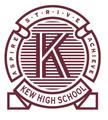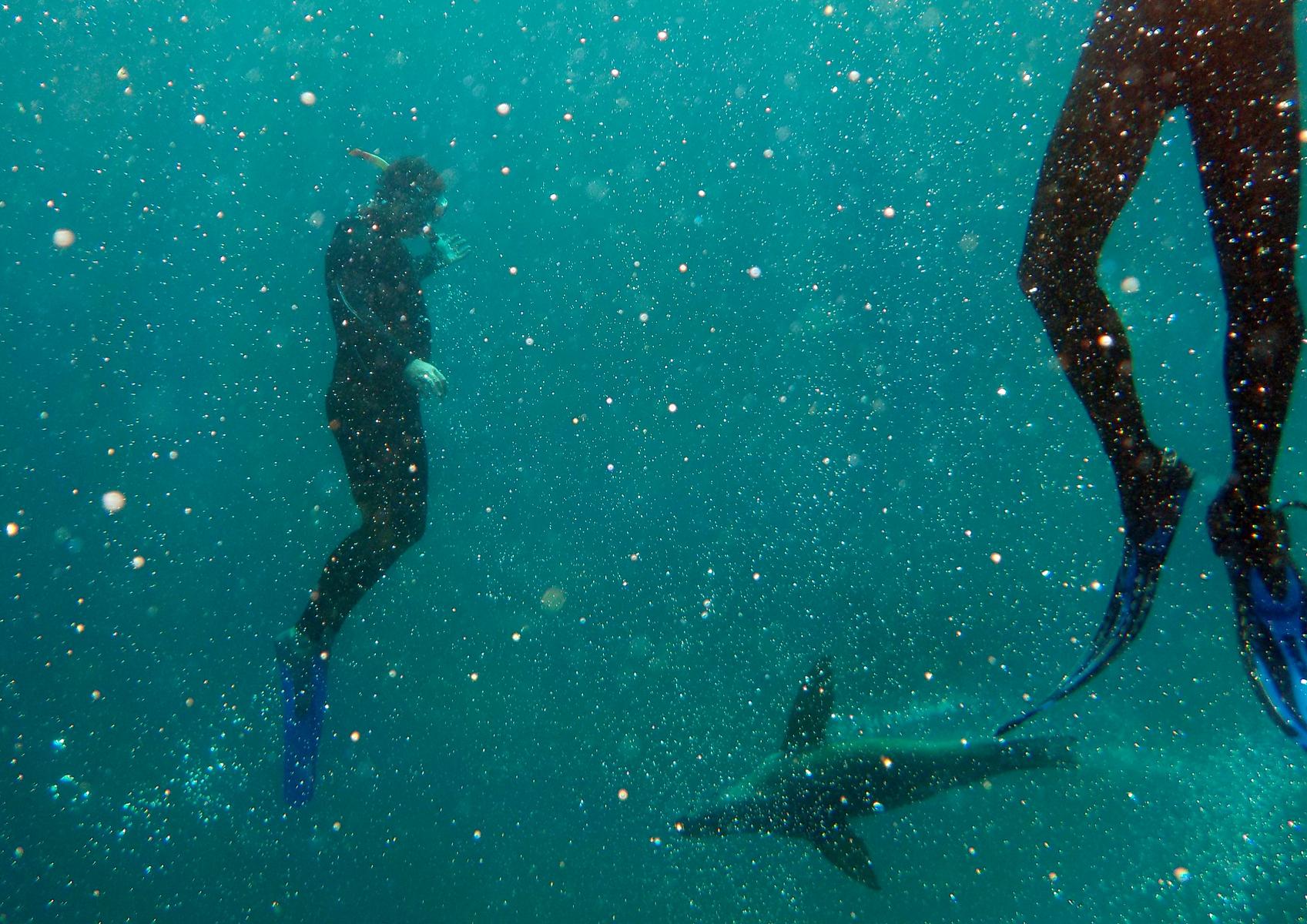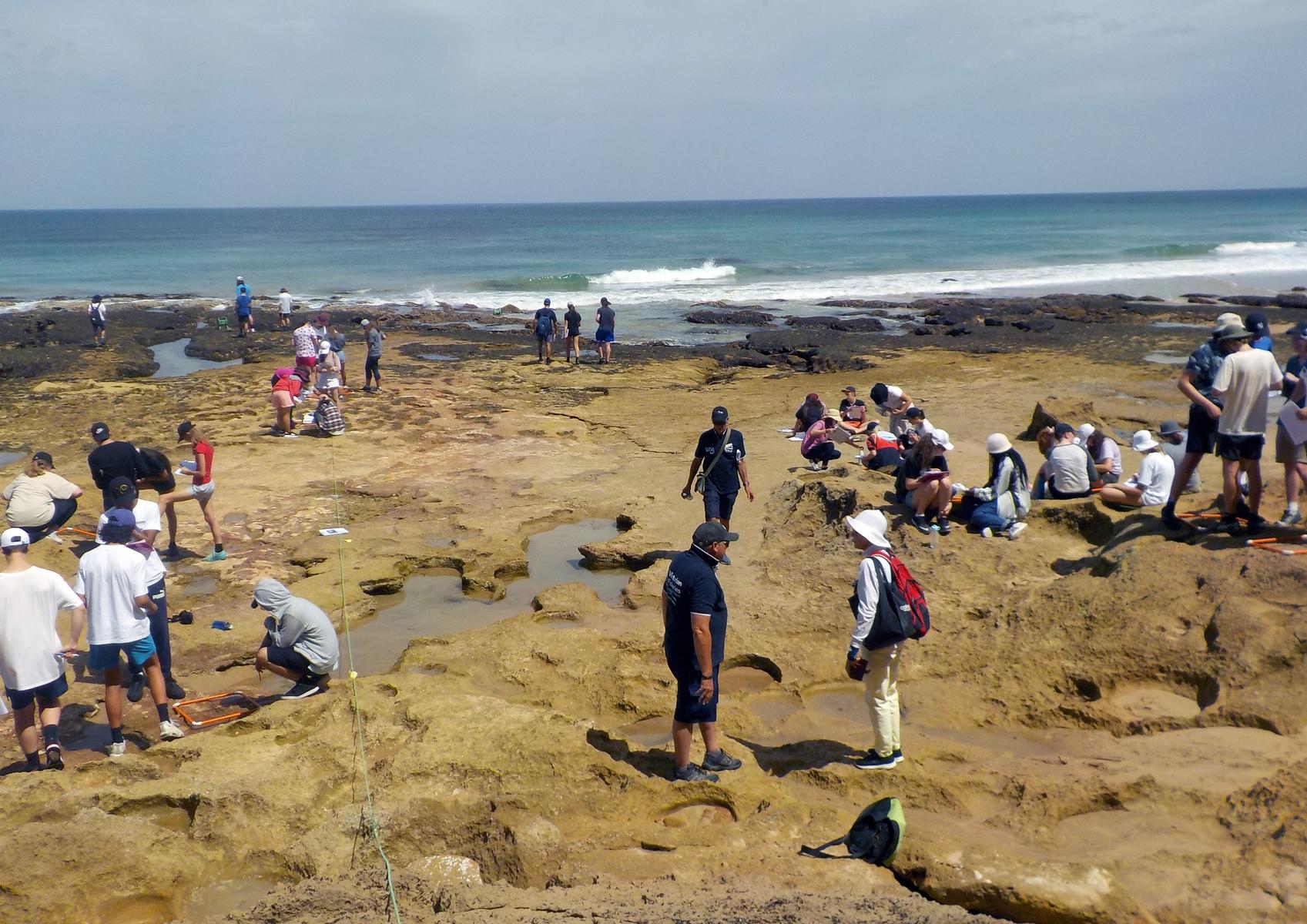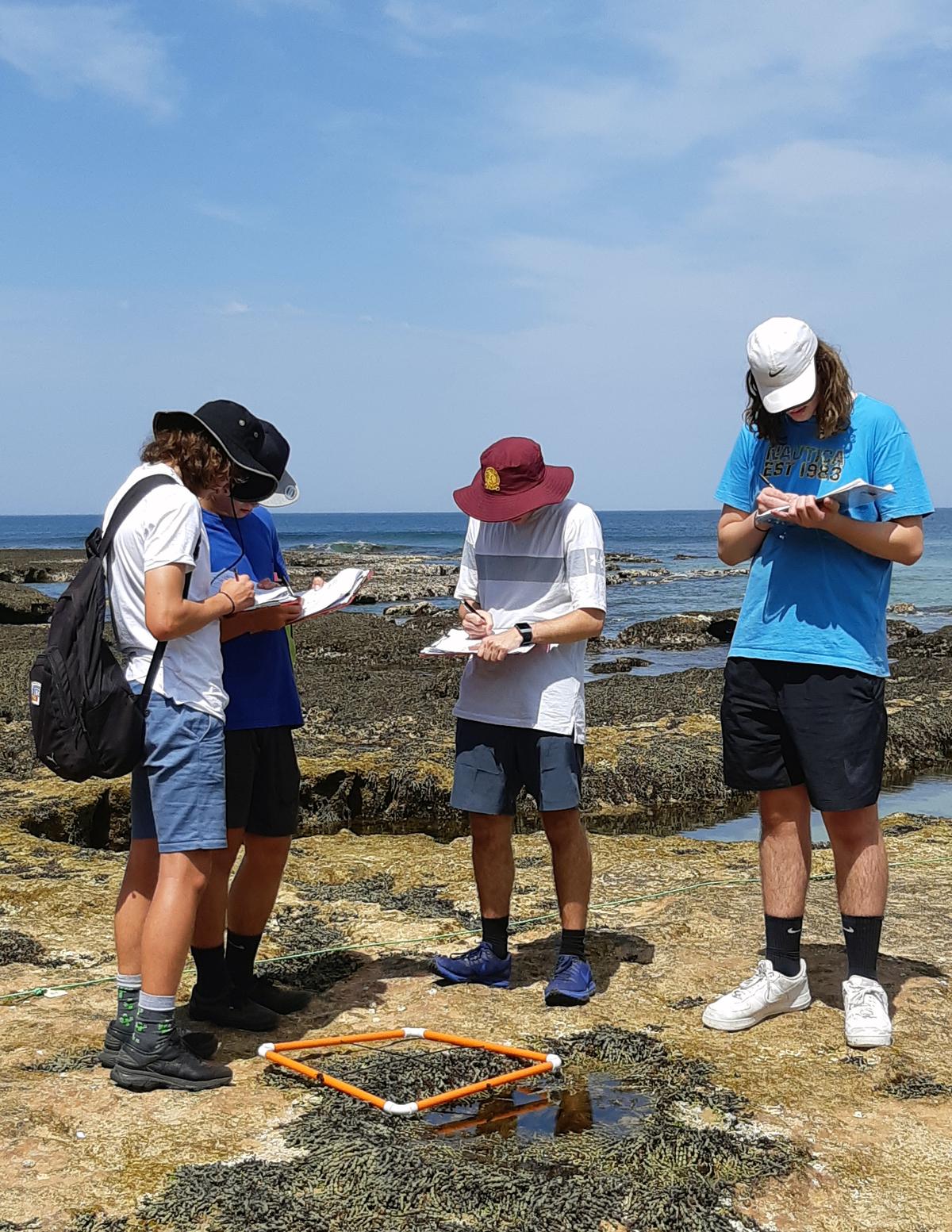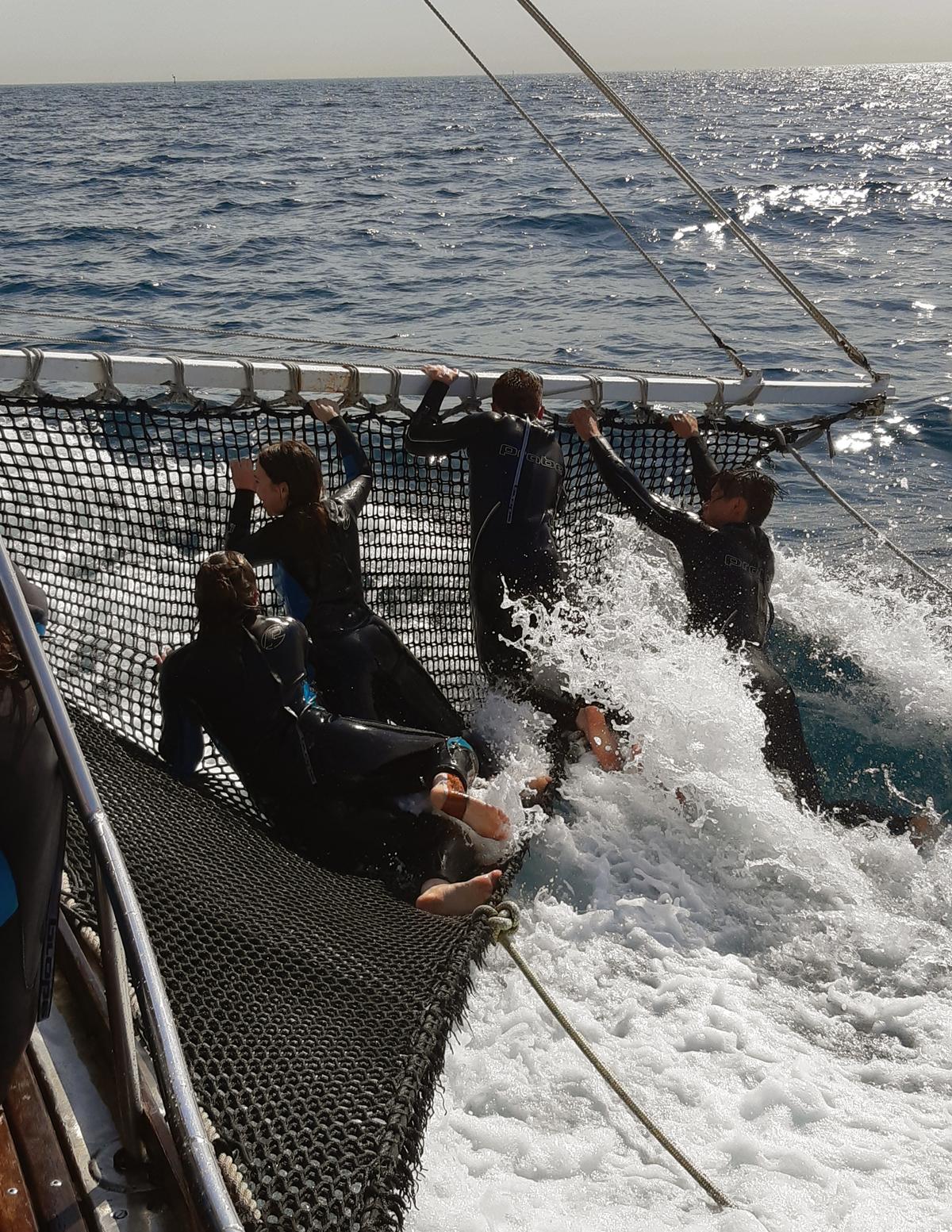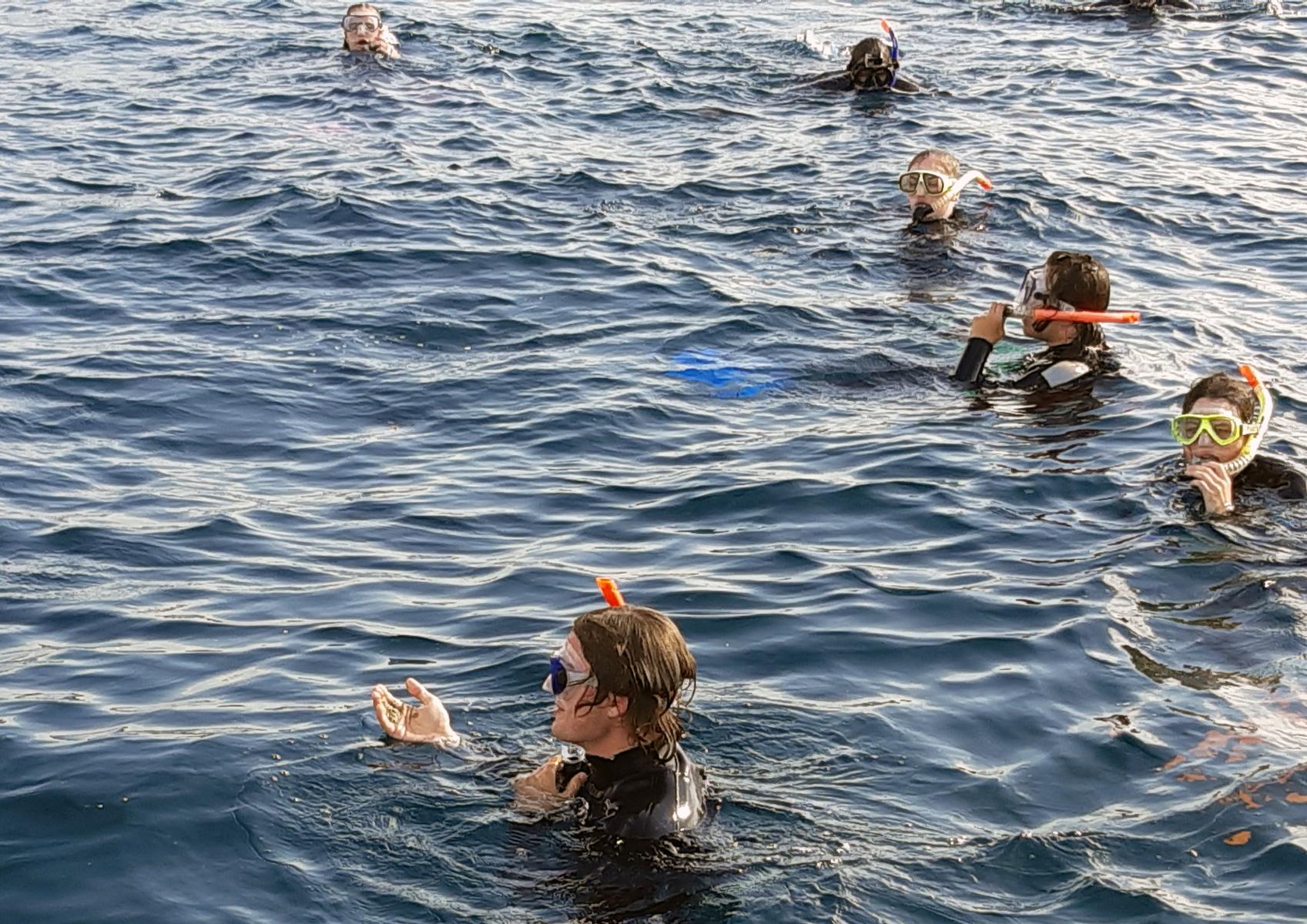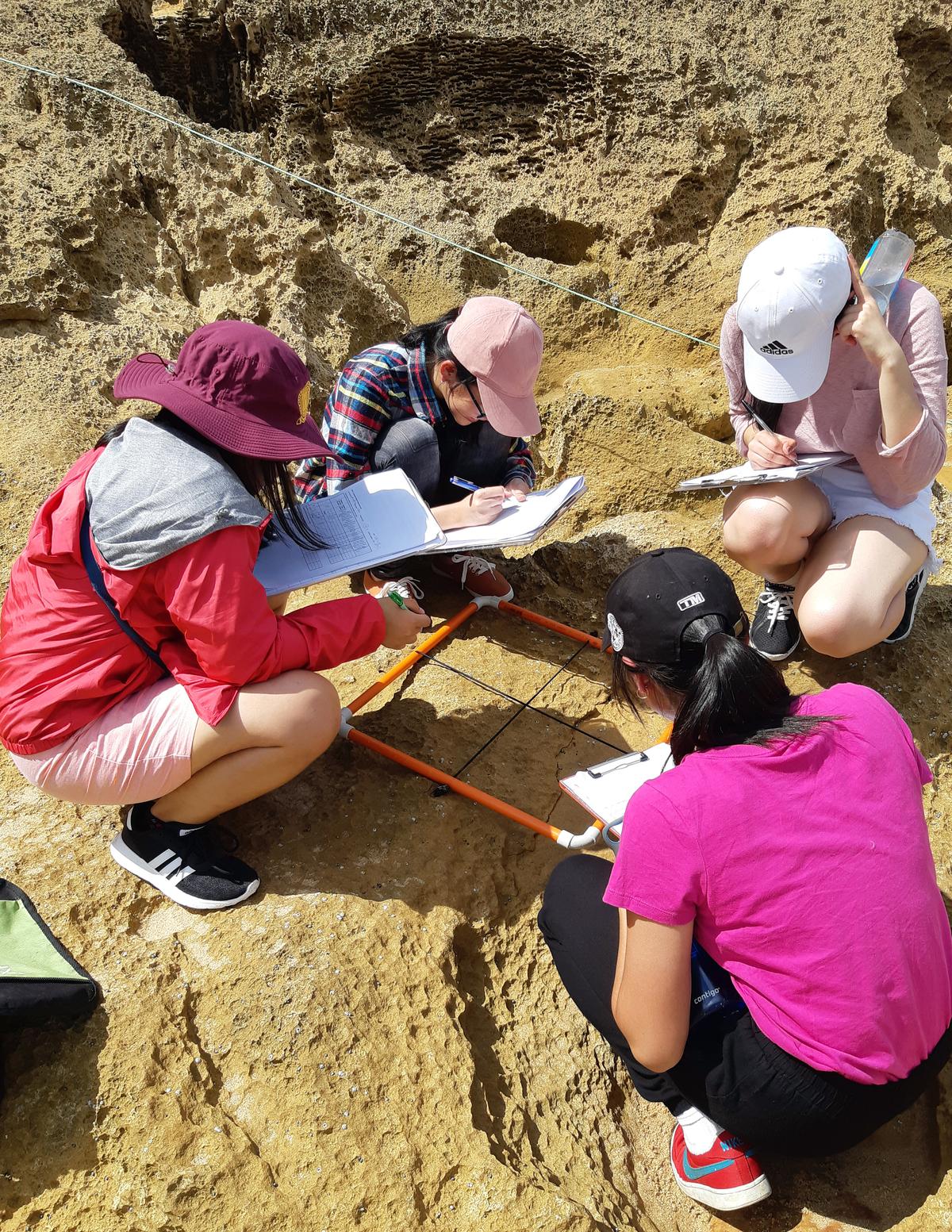Year 11 Biology Camp
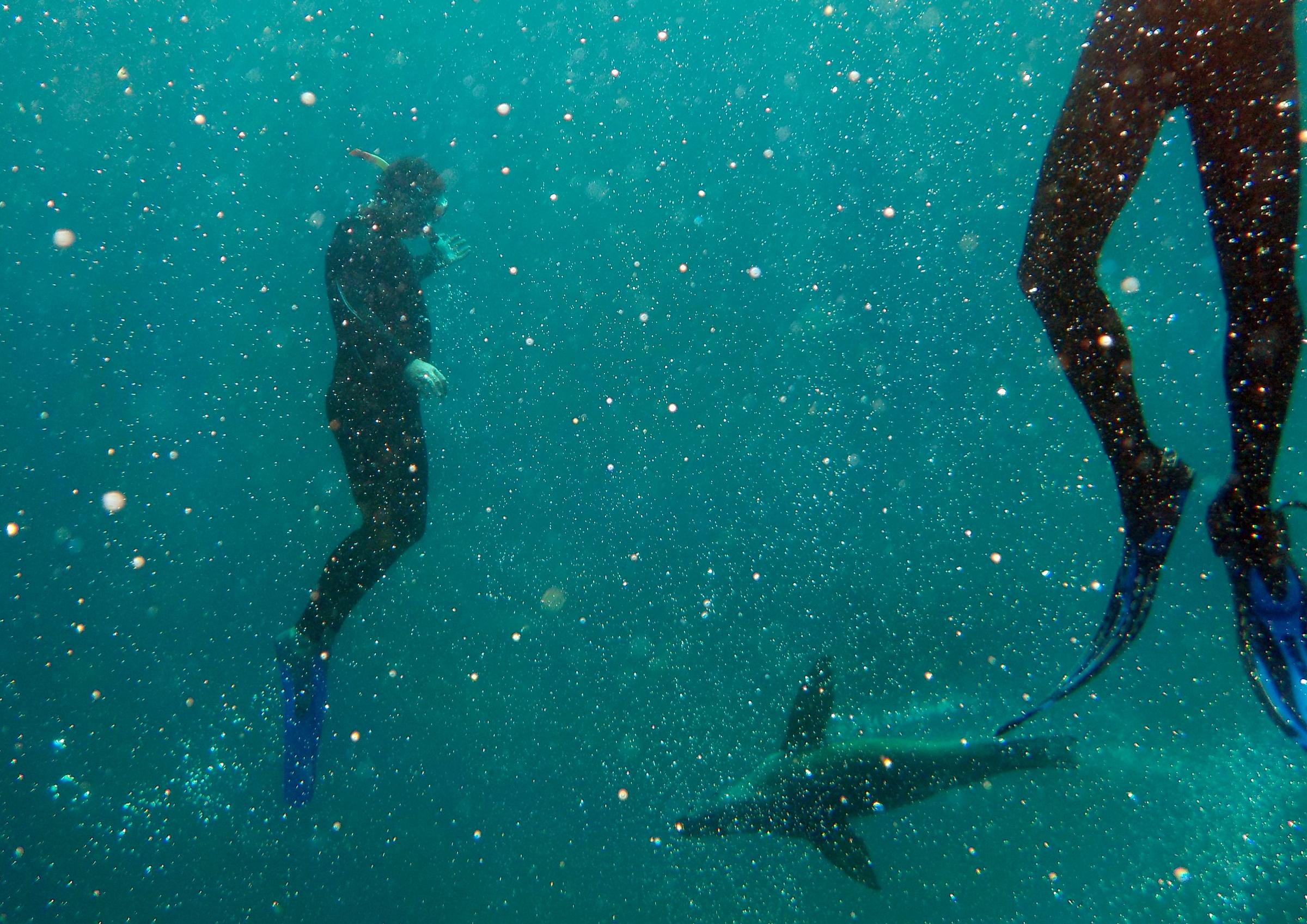
Queenscliff Thursday 28 February – Friday 1 March 2019
On Thursday 28 February 69 year 11 Biology students and 9 staff headed off to Queenscliff for an overnight camp focusing on a range of activities coordinated by the Marine and Freshwater Discovery Centre. This education facility is an initiative of Fisheries Victoria and provides a range of tailored programs beyond the scope of the regular classroom. Specifically, the camp enabled our students to fulfill the fieldwork component of their course and, in so doing, add valuable data to the Centre’s longitudinal study of population changes in the marine ecosystem of Swan Bay.
Our two-day program was very full. Students needed to be at school by 6.40am ready for the bus trip to the Marine Studies Centre, Queenscliff. On arrival at the Centre students rotated through two laboratory-based activities involving investigation of a range of reproductive and structural adaptations and then enjoyed a guided tour of the Centre’s aquarium, culminating in an opportunity to handle a number of organisms in the Centre’s touch tank.
After a very quick lunch, we moved down to the beach for the fieldwork component of the camp. Using specialised equipment and the expertise of our instructors, students carried out a variety of sampling techniques aimed at collecting data on plant and animal distribution. Student could then appreciate first-hand how the complex, specialised adaptations seen in the morning’s activities enable survival in this harsh marine environment. In doing so, the students gained a deeper understanding of a central theme in biology – the relationship between structure and function.
By late afternoon, we were back on the buses heading to our accommodation. After a long, hot and very tiring day students appreciated settling into their rooms and exploring all our accommodation had to offer: swimming pool and spa, trampoline area and the coffee shop. When it came to dinnertime, we travelled back into Queenscliff. Fortunately, it was a lovely summer evening, perfect for sitting outside enjoying a pizza or fish and chips.
On Day 2 students were on the bus, having had breakfast, packed and cleaned their rooms. Students had the choice of participating in one of two different snorkelling activities or a marine studies cruise. One snorkelling group went out by boat to Popes Eye, a unique area within the Marine National Park. The other snorkelling group investigated the marine environment a little closer to the shore. Both groups had exception viewing of the rich community of plant and animal life in Port Phillip Bay. The marine studies cruise travelled out on the bay to observe a colony of Australian Fur Seals and a colony of Australasian Gannets. Along the way a small sledge was deployed which sampled material from the bottom of the bay, enabling students to observe a range of bottom dwelling organisms like crabs, sea-stars, seahorses, sponges, some fish as well as lots of seaweeds.
On returning to school students analyse their data and, in conjunction with further research, present their findings as a scientific poster. They select one organism viewed over the 2 days, identify a range of its adaptations and link these adaptations to the organism’s survival in its habitat – in other words, “how can the organism live where it does”.
The Unit 1 Biology teachers (Matthew Goodridge Kelly, James Dean and Di Keage) along with the students would like to say a big thank-you to the staff who came along to ensure the success of the camp by driving the buses, organising the allocation of rooms and getting breakfast on the table: Louise Bates, Tom Williams, Penelope Cleghorn, Judy Finger, Dawn Morrissey and Elena Aleksoska.
Students were asked to complete a feedback sheet on their return, consensus being that students found it a worthwhile activity with the overwhelming highlight being snorkelling. If parents have any suggestions, we would be delighted to hear from you.
To end, here is a reflection from one of our International students, Kelly Tra My Nguyen, that nicely illustrates the value of field-based learning.
After a few weeks into Term 1, the school took us on a two-day Marine Biology Camp in Queenscliff in Victoria, two hours drive from Melbourne and it was such a great trip.
Once we arrived at the Marine Discovery Centre, we had the chance to visit the aquarium, to be introduced to the fascinating structures and behaviours of the organisms that allow them to adapt to the environment they live in, and to investigate a variety of structure-function relationships of marine animals and plants. We also explored the animal and plant life of the rocky shore. It was a super hot but fun day.
The best part of the Camp was on the second day when we went snorkelling in Port Phillip Bay. At first I was a little bit nervous but, after seeing the seals, I felt excited. They were so cute. Swimming in the ocean and observing all the marine animals and plants was such a great experience though we didn't see any dolphins swimming nearby as we hoped.
After the trip, I had more knowledge of marine diversity and made more friends. It is been one of the most unforgettable camps in my life.
